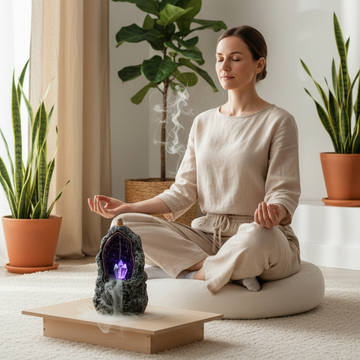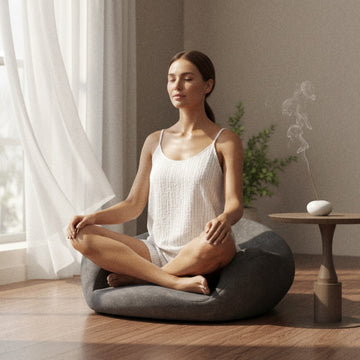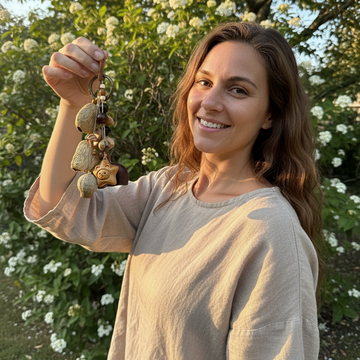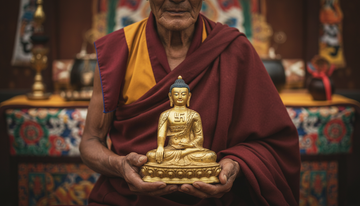🪷 How Beginners Can Understand Meditation: A Practical and Scientific Guide
🌸 1. What Is Meditation?
Meditation, or “Zen practice,” is a method of training the mind through awareness and observation. Its roots trace back to ancient India and East Asia, particularly in Buddhist “Zen” and Hindu “Dhyana” traditions. While often associated with religion, meditation today is widely practiced as a scientifically supported method for cultivating focus, emotional balance, and self-awareness.
From a psychological perspective, meditation can be defined as:
“A deliberate mental training aimed at reducing automatic thinking patterns and enhancing present-moment awareness.” (Kabat-Zinn, 2003)
🌿 2. Why Should Beginners Learn About Meditation?
In today’s fast-paced, high-stimulus environment, meditation is no longer just a spiritual practice; it is a scientifically validated tool for mental and physical health.
Mental benefits: Reduced anxiety and depression, increased emotional stability (Davidson & Goleman, 2017).
Physical benefits: Lower blood pressure, improved sleep, reduced chronic pain (Harvard Medical School, 2020).
Neuroscience findings: MRI studies show that regular meditation increases activity in the prefrontal cortex and hippocampus, regions linked to emotional regulation and memory (Lazar et al., 2005).
For beginners, understanding meditation means seeing it not as “emptying the mind” but as training awareness to live more fully in the present moment.
🌊 3. Core Concepts Every Beginner Should Know
1️⃣ Present-Moment Awareness (Mindfulness)
The foundation of meditation is returning to “here and now” through breath or body awareness.
2️⃣ Non-Judgmental Observation
Meditation is not about labeling experiences as good or bad, but observing them as they are.
3️⃣ Insight and Observation
With consistent practice, you begin to see mental patterns: how emotions arise, how thoughts fade.
4️⃣ Consistency Over Intensity
Studies show that short, regular sessions build stronger neural pathways than occasional long sessions (Tang et al., 2015).
🌅 4. How to Start Meditation as a Beginner
✅ Create the Right Environment:
A quiet space at home or a meditation center
Comfortable seating (cushion or chair) with a naturally straight spine
Soft lighting and minimal distractions
✅ Basic Practices:
Breath Meditation: Focus on the sensation of breathing at the nose or abdomen.
Body Scan: Slowly move attention from head to toe, observing sensations.
Walking Meditation: Walk slowly, feeling each step connect with the ground.
✅ Time Commitment:
Start with 5–10 minutes daily, gradually extending to 20–30 minutes.
Ideal times: early morning or before sleep when the mind is calmer.
✅ Mental Preparation:
Drop expectations of “instant results.”
Accept wandering thoughts as part of the process.
Use gentle observation instead of forcing silence.
🔍 5. Common Beginner Misconceptions
“Meditation means stopping all thoughts.”
In reality, meditation is about seeing thoughts clearly, not erasing them.
“You must sit cross-legged for hours.”
Comfort and awareness matter more than posture.
“It’s only for religious people.”
Modern meditation has evolved into a secular practice supported by psychology and neuroscience.
🔬 6. The Bridge Between Tradition and Science
Modern research continues to validate the benefits of meditation, but its value goes beyond stress relief or therapy. It is a lifestyle shift, a way to cultivate clarity and compassion in everyday life.
“Meditation is not about becoming a different person. It’s about being fully yourself.”
— Jon Kabat-Zinn
🌟 7. Conclusion: Meditation as a Lifelong Journey
For beginners, understanding meditation is the first step; the real transformation lies in practice. Start with a few minutes a day, observe without judgment, and let meditation become a natural part of your life.
Meditation isn’t about escaping the world—it’s about returning to it with greater clarity and presence.













